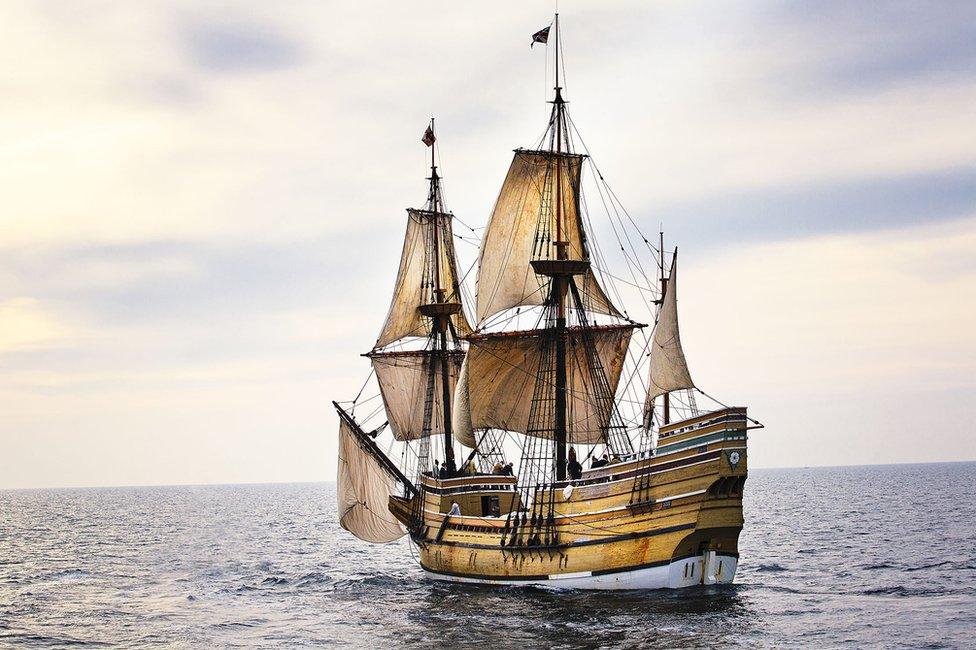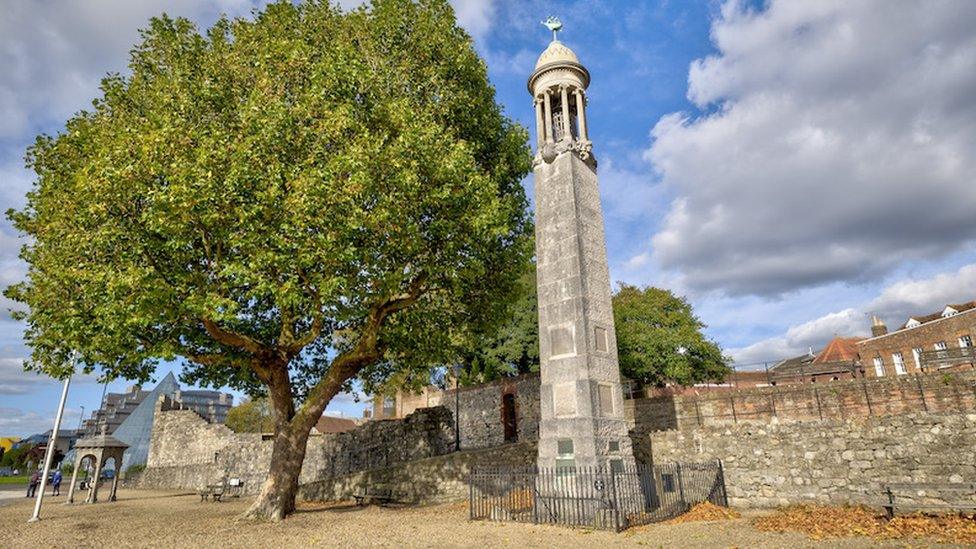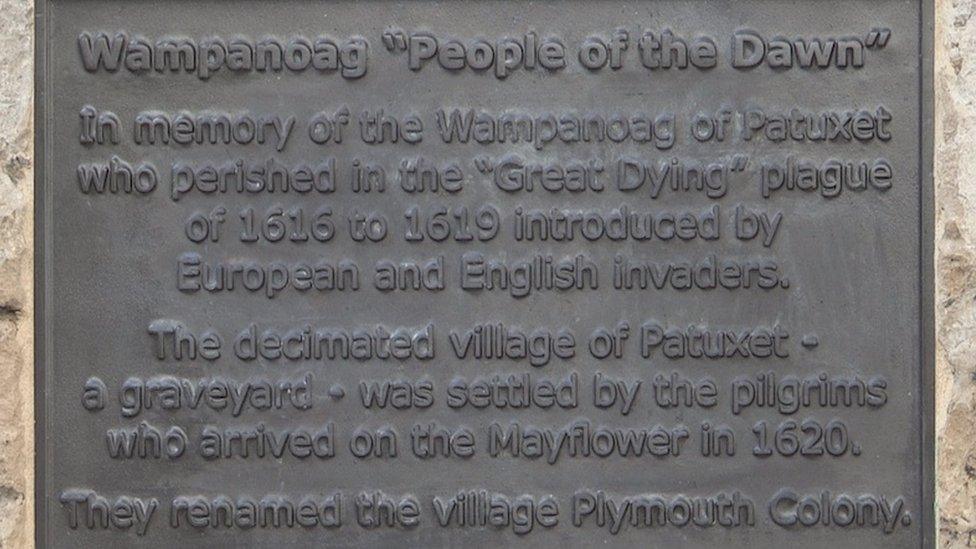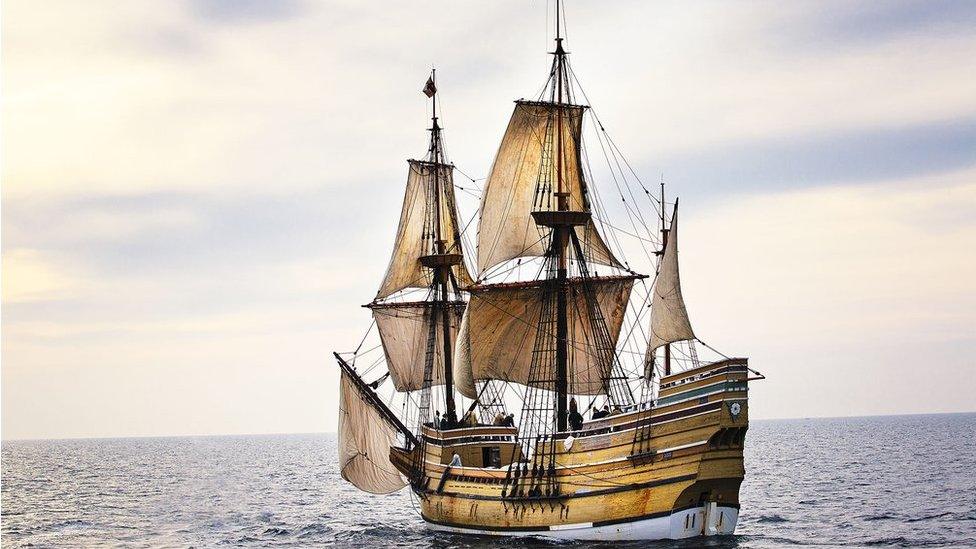Mayflower 400: Plaque honours Native Americans killed by plague
- Published

The Mayflower set sail from Southampton in August, 1620, before reaching the coast of Massachusetts, via Plymouth
Native Americans killed by diseases brought by Europeans have been honoured at a memorial to the Pilgrim Fathers.
Previously the Mayflower Memorial in Southampton had plaques only honouring English settlers and crew who sailed on the Mayflower to North America in 1620.
A new plaque now remembers a tribe who were "decimated" by foreign diseases prior to the Pilgrims setting up a colony at their empty village.
Southampton's council said it hoped to "widen the lens of local history".
It comes as the city believes it will be the first in the UK to mark Native American Heritage Month, as part of celebrating the ship's 400th anniversary.

The Mayflower Memorial previously had eight plaques, dedicated only to the Pilgrims, passengers and crew
The Mayflower set off from Southampton in August 1620, but had to dock in Plymouth after an accompanying ship, the Speedwell, sprung a leak.
On September 16 the Mayflower set sail alone, arriving two months later off the coast of what is now known as Plymouth, Massachusetts.
The Pilgrims found an empty village - a graveyard - known as Patuxet and set up Plymouth Colony.
The village where tribe Wampanoag of Patuxet lived was left empty due to them being killed by an outbreak of disease brought by European and English invaders, the plaque reads.

The plaque comes as Southampton observes Native American Heritage month as part of the Mayflower's 400th anniversary celebrations
Steven Peters, a representative of the Wampanoag people, said: "So often that part of history, what happened to our ancestors in the village of Patuxet, has been silent.
"That's a really sad moment for us.
"It's a hard part of the story to tell, but as we think about that, there's respect that needs to be paid to these people."
The city's links with Native Americans also extends to the visit of Buffalo Bill and the likely arrival in England of Pocahontas, the council said.
Mayor of Southampton Sue Blatchford, said: "We commit to ensuring all our school children learn their story.
"The story of the Mayflower will be told in this city not just from the perspective of those waving the ship off, but also from those witnessing its arrival from the Massachusetts shore."
- Published18 September 2020
- Published16 September 2020

- Published16 September 2020
